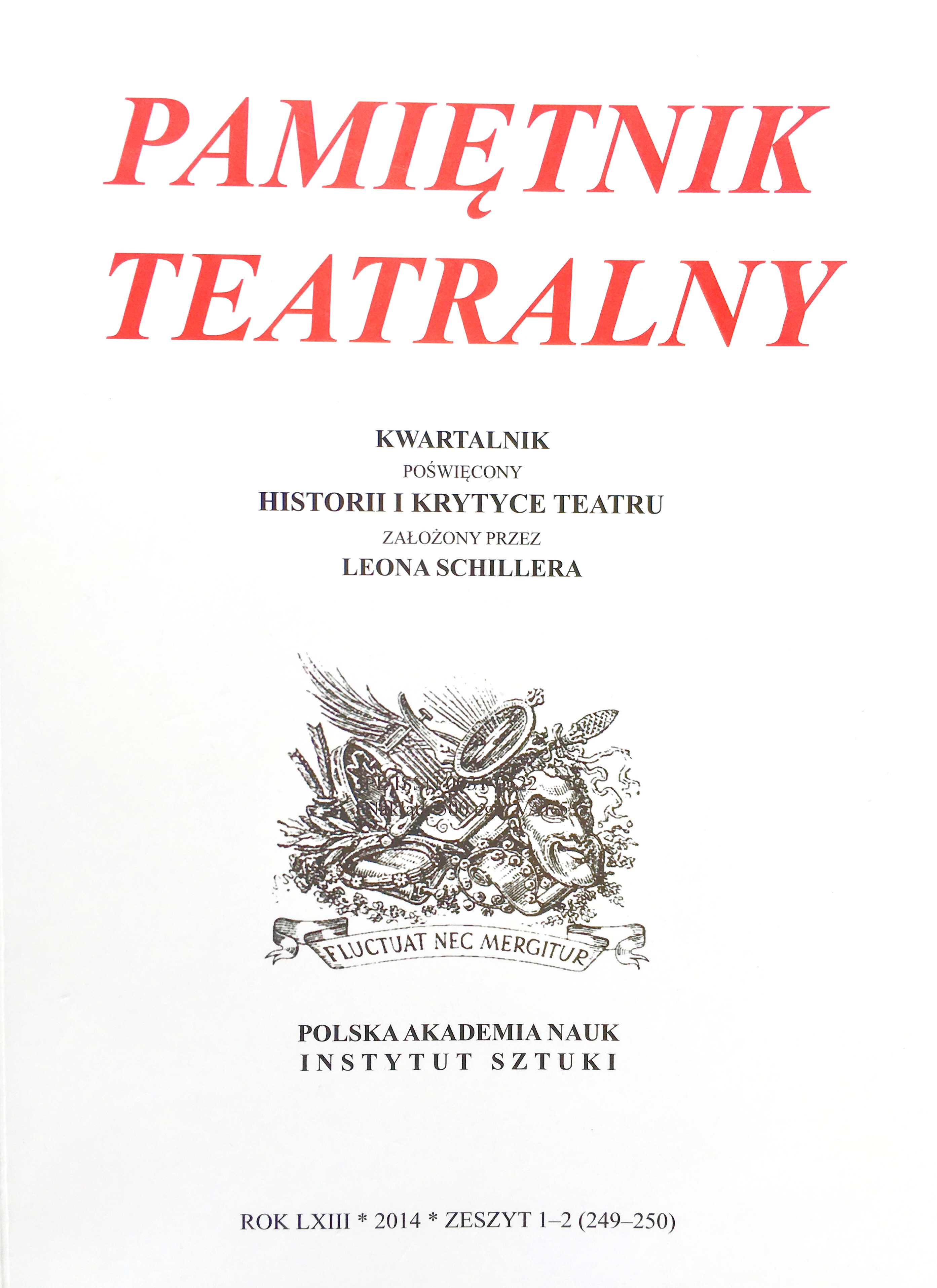Recenzja książki Przemysława Strożka, Marinetti i futuryzm w Polsce 1909–1939. Obecność – kontakty – wydarzenia (Warszawa, 2012)
Reviewif Przemysław Strożek's Book Marinetti i futuryzm w Polsce 1909–1939. Obecność – kontakty – wydarzenia (Warszawa, 2012)
Author(s): Jagoda Hernik SpalińskaSubject(s): Fine Arts / Performing Arts
Published by: Instytut Sztuki Polskiej Akademii Nauk
Keywords: theatre studies; Polish theatre;avantgardistic aesthetics;futurism;
Summary/Abstract: The book Marinetti i futuryzm w Polsce 1909–1939. Obecność – kontakty – wydarzenia by Przemysław Strożek not only adds to the current knowledge of Futurism but most of all increases the awareness of its ambiguous and questionable politico-ideological dimension, which has been largely overlooked in the general reception of the movement. The fascist affiliation of the movement has been usually swept under the rug in the international research. This results from “attempts to reject the embarrassing works that expressed the fascist propaganda”, which right after 1945 formed a distorted view of the movement’s activity so that it would “suit the new image of the post-war Italy”. Thus, it may be said that Strożek’s book contributes substantially to our knowledge of the Polish socio-cultural life in the inter-war period insofar that it sheds new light on some of its aspects that have seemed already settled and defined, and shows how surprisingly strong, given the weakness of the Futurist movement reception in Poland, the impact of Futurism on the shape of contemporary theatre, and even on the socio-political and intellectual life in general, really was. The author refers the dramaturgical principles according to which the Italian Futurist dramas (the so-called syntheses) were composed, presents the Futurist movement in chronological order, and shows in what ways its accomplishments influenced the Polish literary and theatre life. He recounts the failed, but very important for the subsequent reception of the movement, attempts to stage Italian Futurist plays at the Polski Theatre in Warsaw and discusses two Polish premieres of Jeńcy (Prigionieri) by Marinetti (Lvov, 1933; and Cracow, 1937). The discussion of these theatre events is accompanied by an insightful analysis of the influence that the Polish cultural and intellectual circles had on popularising the Italian Futurism in Poland, even though at the same time they turned a blind eye on the work of Polish Futurists.
Journal: Pamiętnik Teatralny
- Issue Year: 250/2014
- Issue No: 1-2
- Page Range: 289-305
- Page Count: 17
- Language: Polish

